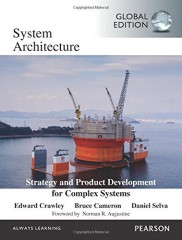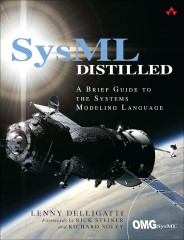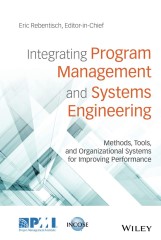In the multifaceted and often high-pressure world of professional engineering, where projects span from the seemingly simple to the extraordinarily complex – encompassing everything from the latest consumer electronics to groundbreaking biomedical devices and sprawling infrastructure initiatives – the ability to meticulously track and unequivocally link every single delivered component, every line of code, every material used, back to its fundamental originating need is not merely a desirable attribute; it is the very bedrock upon which consistent and reliable project success is built. This foundational capability, the cornerstone of robust engineering practice, is known as requirements traceability. It represents a disciplined and systematic process that meticulously establishes and rigorously maintains transparent connections between the initial, often abstract, project requirements and the tangible, concrete artifacts produced throughout the entire project lifecycle. From skillfully navigating the intricate web of stringent international standards and regulatory mandates to ensuring the flawless, safe, and reliable operation of safety-critical systems where human lives may depend on every detail, the profound and far-reaching importance of implementing comprehensive requirements traceability cannot be overstated. Join us as we embark on a more in-depth exploration of the critical significance of requirements traceability, enriching our understanding with compelling real-world examples and practical insights, ultimately illustrating how its diligent and thorough implementation serves as the essential roadmap, guiding engineering teams toward predictable, high-quality, and ultimately successful project outcomes.
Recommended Further Reading Amazon BooksTable of Contents
- Deconstructing the Foundation: A Granular Look at Understanding Requirements Traceability
- Beyond Simple Definitions: Delving Deeper into Verification vs. Validation – The Indispensable Traceability Twins
- The Profound Imperative: Unveiling Why Traceability Transcends Best Practices and Becomes a Necessity – Real-World Impact Amplified
- The Tangible and Measurable Rewards: Unveiling the Concrete Benefits You Can Bank On
- From Theory to Practice: Actionable and Granular Tips for Engineering Professionals
- Case Study: The Ariane 5 Flight 501 Disaster (Lack of Traceability)
- The Strategic Advantage of Purpose-Built Platforms: Supercharging Traceability with Advanced Tools Like Reqi and Others
- Conclusion: Forging a Robust Foundation for Enduring Engineering Excellence
Deconstructing the Foundation: A Granular Look at Understanding Requirements Traceability
At its essence, requirements traceability is the meticulous and ongoing process of establishing and diligently maintaining a comprehensive network of interconnected links between the diverse array of project artifacts and the initial, often high-level, requirements that serve as the fundamental drivers for the entire undertaking. Imagine it not just as the DNA, but as the complete genetic code of your project, providing an unbroken and fully documented chain of evidence that stretches from the initial spark of an idea, the articulation of a customer need, or the identification of a critical system function, all the way through to the final delivered product, its testing protocols, its maintenance manuals, and even its eventual decommissioning. This intricate web of interconnectedness cultivates unparalleled levels of transparency, fostering a clear understanding of how each element of the project contributes to the overarching goals, and establishing unambiguous accountability at every single stage of development and deployment.
Beyond Simple Definitions: Delving Deeper into Verification vs. Validation – The Indispensable Traceability Twins
While the terms verification and validation are frequently used in conjunction and sometimes even interchangeably within the realms of engineering and project management, it is absolutely crucial to recognize and appreciate the distinct yet profoundly symbiotic roles they play within the context of effective requirements traceability. Verification, in its essence, is the process of rigorously examining the developed artifacts – encompassing everything from initial design specifications and architectural blueprints to the lines of code that bring software to life, the physical dimensions of manufactured components, and the detailed test scripts designed to ensure functionality – to definitively answer the critical question: “Are we meticulously building the product right?” It is a process focused on ensuring strict adherence to the specified requirements, confirming that each artifact conforms precisely to the established specifications and standards. Think of the meticulous process of verifying the precise dimensions and material composition of a critical component destined for a spacecraft against the highly detailed engineering blueprint, ensuring every tolerance is met with absolute precision.
Validation, on the other hand, addresses a different, yet equally critical, question: “Are we, in the final analysis, building the right product?” This process goes beyond mere adherence to specifications and delves into confirming that the fully integrated system, the final product delivered to the end-user, effectively meets the originally intended user needs, fulfills the stated purpose, and operates seamlessly and effectively within its intended operational environment. A classic example would be the comprehensive user acceptance testing conducted on a newly developed software application, where actual end-users interact with the system in realistic scenarios to confirm that it truly solves their problems, meets their expectations, and is user-friendly and intuitive. Both verification and validation are not isolated activities but rather integral and interwoven threads within the rich fabric of requirements traceability, together ensuring not only that the project is built according to the defined specifications but, more importantly, that it ultimately delivers the intended value and satisfies the needs of its stakeholders.
Recommended Further Reading Amazon BooksThe Profound Imperative: Unveiling Why Traceability Transcends Best Practices and Becomes a Necessity – Real-World Impact Amplified
The significance of implementing robust requirements traceability extends far beyond the realm of abstract theoretical best practices or academic discussions. It has tangible, measurable, and often critical impacts on the real-world success of engineering projects, particularly in several key and often high-stakes areas:
- Navigating the Intricate Labyrinth of Regulatory Compliance and Standards Adherence: In a multitude of heavily regulated industries, including but not limited to aerospace engineering where passenger safety is paramount, the development of sophisticated medical devices where patient well-being is the ultimate concern, and the automotive sector where stringent safety and environmental regulations are constantly evolving, requirements traceability is not merely a strongly recommended practice – it frequently constitutes a non-negotiable legal and regulatory mandate. Consider, for instance, the intricate and demanding development process of an aircraft’s sophisticated flight control system. Every single line of code that governs its operation, every critical hardware component that contributes to its functionality, must be meticulously and demonstrably traceable back to specific, often safety-critical, requirements dictated by stringent aviation authorities such as the FAA or EASA. Without this rigorous and auditable chain of traceability, obtaining the necessary certifications for flightworthiness and, more importantly, ensuring the safety of passengers and crew would be utterly impossible, potentially leading to severe legal repercussions and catastrophic consequences. Similarly, in the medical device industry, traceability ensures that every component of a life-saving device can be traced back to its design specifications and safety requirements, crucial for post-market surveillance and ensuring patient safety in case of any issues.
- Mastering the Art of Taming the Ever-Growing Complexity Beast: Modern engineering projects, across virtually all disciplines, are increasingly characterized by incredibly intricate networks of interdependencies, where numerous components and subsystems interact in complex and often non-linear ways. Think, for example, of the design and implementation of a smart grid system for a large metropolitan area. Changes or modifications to one seemingly isolated component, such as a transformer or a communication protocol, can have far-reaching and potentially unpredictable cascading effects on numerous other parts of the system. In such complex environments, requirements traceability acts as an indispensable and dynamic roadmap, providing engineers with the crucial ability to thoroughly understand these intricate relationships, meticulously assess the potential impact of any proposed modifications or changes, and proactively prevent unintended and potentially detrimental consequences. Without this detailed understanding facilitated by traceability, managing such levels of system complexity becomes akin to navigating a high-wire act without a safety net, significantly increasing the risk of costly errors, system failures, and project delays.
- Proactive Risk Mitigation and Early Issue Detection: By meticulously and systematically linking initial requirements to subsequent design decisions, detailed implementation specifications, and comprehensive testing efforts, robust requirements traceability serves as a powerful lens, illuminating potential risks and vulnerabilities early in the project development lifecycle. For instance, if a critical safety requirement for an autonomous vehicle’s braking system is not adequately covered by a sufficient number and rigor of test cases, a well-maintained traceability matrix will clearly highlight this potentially dangerous gap. This early visibility allows engineering teams to take timely and effective corrective action – in this case, developing more comprehensive test scenarios – long before a potential failure could occur in a real-world scenario, potentially preventing accidents and saving lives. This proactive approach to risk management, facilitated by traceability, is far more efficient and cost-effective than reacting to problems discovered late in the development cycle or, even worse, after deployment.
| Challenge/Pain Point | How Requirements Traceability Provides the Solution | Resulting Benefit |
|---|---|---|
| Difficulty Understanding the Impact of Changes: When a change request comes in, it’s hard to know what else will be affected. | Traceability links requirements to design elements, code, tests, and documentation, showing the interconnectedness. | Faster and more accurate impact analysis, reduced risk of unintended consequences, better change management. |
| Ensuring All Requirements Are Addressed: It’s easy for some requirements to slip through the cracks during development and testing. | Traceability matrices and tools track the status of each requirement across all project phases. | Comprehensive requirement coverage, reduced risk of missing critical functionalities, higher quality product. |
| Proving Compliance with Standards and Regulations: Demonstrating that the product meets specific rules can be time-consuming and difficult. | Traceability provides an auditable trail from requirements to verification and validation activities, proving adherence. | Simplified compliance audits, reduced risk of penalties and legal issues, increased stakeholder trust. |
| Troubleshooting and Debugging Issues: When a defect is found, it’s hard to trace it back to the originating requirement. | Traceability links defects back to the specific requirements and related design/code. | Faster root cause analysis, more efficient debugging, reduced time to resolution. |
| Managing Complex Systems: With many interconnected components, it’s hard to maintain a holistic understanding. | Traceability provides a clear overview of the relationships between different parts of the system and their underlying requirements. | Improved system understanding, better decision-making during development and maintenance, reduced integration issues. |
| Lack of Accountability and Ownership: It’s unclear who is responsible for ensuring specific requirements are met. | Traceability can link requirements to specific individuals or teams responsible for their implementation and verification. | Increased accountability, clearer ownership, improved team collaboration. |
| Inefficient Testing Efforts: Test cases may not adequately cover all requirements, leading to undetected defects. | Traceability ensures that test cases are directly linked to requirements, guaranteeing comprehensive test coverage. | More effective testing, higher confidence in product quality, reduced risk of releasing defective software/hardware. |
| Difficulty in Demonstrating Value to Stakeholders: Showing how the delivered product aligns with their initial needs can be challenging. | Traceability provides a clear and demonstrable link between stakeholder requirements and the final product features. | Improved stakeholder communication and satisfaction, increased confidence in project outcomes. |
The Tangible and Measurable Rewards: Unveiling the Concrete Benefits You Can Bank On
The diligent and effective implementation of robust requirements traceability yields a multitude of tangible and measurable benefits that directly and positively contribute to the overall success of engineering projects, impacting everything from cost and schedule to quality and stakeholder satisfaction:
- Ensuring Unwavering Thoroughness: Comprehensive and Unambiguous Requirement Coverage: Effective requirements traceability acts as an invaluable safety net, providing an irrefutable guarantee that every single documented requirement, no matter how seemingly minor, is systematically addressed, rigorously verified against the design and implementation, and ultimately thoroughly validated to ensure it meets the intended purpose throughout the entire project lifecycle. This unwavering thoroughness builds a strong foundation of confidence that the final deliverable will not only meet all the explicitly stated expectations but will also minimize the costly and time-consuming need for rework, redesign, or the addition of missing functionalities late in the project.
- Establishing Critical Connections: Comprehensive Artifact and Stakeholder Traceability: The power of robust traceability extends far beyond simply linking requirements to code or hardware. It encompasses the establishment and maintenance of clear and demonstrable links to all associated project artifacts – including initial conceptual design models, detailed analysis reports that justify design choices, comprehensive test cases designed to validate functionality, detailed test procedures that outline how testing will be conducted, comprehensive user manuals that guide end-users, and even critical regulatory documentation required for compliance. Furthermore, a well-implemented traceability system allows for the clear identification and tracking of the specific individuals, teams, or user groups who are directly associated with particular requirements and their corresponding artifacts, fostering a strong sense of ownership, facilitating seamless and efficient collaboration across different disciplines, and ensuring clear lines of communication and accountability. Imagine the efficiency gained by being able to quickly identify the specific engineer responsible for a particular design element when a critical change request arises from a key stakeholder.
- Accelerating Issue Resolution: Empowering Rapid and Accurate Impact Analysis: When inevitable change requests or unexpected defects arise during the course of a complex engineering project, robust requirements traceability provides an absolutely invaluable tool for conducting rapid and accurate impact analysis. By effortlessly tracing the affected requirements and all their related downstream artifacts, engineering teams can quickly and precisely understand the full scope of the proposed change or the discovered defect, accurately estimate the effort and resources required to address it, and effectively minimize potential disruptions to the overall project schedule and budget. This ability to quickly assess the ripple effects of changes or problems is a significant advantage in maintaining project momentum and controlling costs.
- Enhancing Communication and Collaboration: Fostering a Shared Understanding: A well-maintained traceability matrix or a sophisticated requirements management tool with robust traceability capabilities serves as a central and authoritative source of information for all project stakeholders. It provides a clear and transparent view of the relationships between requirements, design elements, implementation details, and testing activities, fostering a shared understanding of the project’s goals, scope, and progress. This improved communication and collaboration among diverse teams – including requirements engineers, designers, developers, testers, and even end-users – can significantly reduce misunderstandings, minimize errors, and promote a more unified and efficient project execution.
- Improving Product Quality and Reliability: Ensuring Alignment with Intended Purpose: By providing a clear and auditable link between the initial requirements and the final delivered product, traceability plays a crucial role in ensuring that the end result truly meets the intended purpose and functions as expected. The ability to trace tests back to specific requirements provides concrete evidence that each requirement has been adequately verified and validated, leading to a higher level of confidence in the quality and reliability of the final engineered system or product.
From Theory to Practice: Actionable and Granular Tips for Engineering Professionals
Implementing effective and truly beneficial requirements traceability doesn’t have to be perceived as an overwhelming or overly bureaucratic burden. Here are some practical, actionable, and more granular tips that engineering professionals can adopt to seamlessly integrate and leverage the power of traceability in their daily work:
- Initiate Early and Maintain Relentless Consistency: Begin the process of establishing traceability as early as humanly possible in the project lifecycle, ideally right from the initial requirements elicitation and documentation phase. Don’t treat it as an afterthought. Furthermore, maintain this discipline rigorously and consistently throughout the entire project duration, ensuring that new requirements, design changes, and testing activities are immediately and accurately linked.
- Strategically Select and Master the Right Tools: While manual traceability using spreadsheets might suffice for extremely small and simple projects, it quickly becomes unwieldy and error-prone for any project of significant complexity. Investing in and effectively mastering dedicated requirements management tools is absolutely essential for modern engineering endeavors. These sophisticated tools offer automated linking capabilities, provide powerful visualization features, facilitate comprehensive reporting, and often integrate with other engineering and project management software. Thoroughly research and evaluate various options, such as [mention a wider range of popular professional tools beyond the initial suggestion, e.g., Siemens Polarion ALM, Atlassian Jira with specific plugins like Xray or Zephyr, Visure Requirements ALM, Helix ALM], and choose the tool that best aligns with your team’s specific needs and workflows. Invest in proper training to ensure all team members can utilize the chosen tool effectively.
- Define Crystal-Clear Traceability Strategies and Link Types: Establish explicit and well-documented guidelines outlining exactly how traceability links will be created, maintained, and managed within your chosen tools and processes. Clearly define the different types of traceability links you will utilize (e.g., satisfies indicating a design element fulfills a requirement, refines showing a lower-level requirement elaborates on a higher-level one, verifies linking a test case to the requirement it validates). Ensure all team members understand these link types and apply them consistently.
- Invest in Comprehensive Team Training and Ongoing Support: Recognize that the effectiveness of your traceability efforts hinges on the understanding and active participation of every team member. Provide thorough initial training on the importance of traceability, the defined processes, and the specific tools being used. Offer ongoing support, address questions promptly, and conduct periodic refresher training to reinforce best practices and introduce new features of your chosen tools.
- Implement Regular Reviews and Rigorous Audits: Don’t treat traceability as a “set it and forget it” activity. Schedule regular reviews of traceability matrices and reports to proactively ensure their accuracy, completeness, and relevance. Conduct periodic audits to identify any gaps, inconsistencies, or broken links, and take immediate corrective action to address them. These audits should involve cross-functional team members to ensure a holistic perspective.
- Embrace the Power of Visualization for Enhanced Understanding: Leverage the often-powerful visualization tools available within your requirements management platform to gain a clear and intuitive understanding of the complex relationships between requirements and other project artifacts. Graphical representations, such as traceability matrices and relationship diagrams, can significantly improve communication among stakeholders, facilitate better decision-making, and quickly highlight areas where traceability might be lacking.
- Focus on Delivering Real Value, Not Just Creating Links: Avoid the trap of simply creating traceability links for the sake of compliance or generating reports. Focus on establishing meaningful and purposeful connections that provide genuine value in terms of understanding impact, ensuring comprehensive coverage, facilitating effective verification and validation, and ultimately contributing to the delivery of a high-quality product. Regularly assess whether your traceability efforts are providing actionable insights.
- Integrate Traceability into Your Existing Workflows: Don’t treat traceability as a separate and isolated activity. Seamlessly integrate it into your existing engineering workflows, such as design reviews, code inspections, and test planning. Ensure that traceability is a natural and integral part of how your team develops and delivers engineering solutions.

Case Study: The Ariane 5 Flight 501 Disaster (Lack of Traceability)
Brief: The maiden flight of the Ariane 5 rocket in 1996 ended in catastrophic failure just 37 seconds after launch. The root cause was traced back to the reuse of software designed for the Ariane 4, specifically the Inertial Reference System (IRS).
Lack of Traceability: While the Ariane 5 had significantly different flight dynamics than its predecessor, a crucial piece of code responsible for aligning the inertial platform before launch was carried over without adequate re-evaluation for the new system’s parameters. There was a lack of clear traceability between the Ariane 5’s specific requirements (especially regarding its faster acceleration and different trajectory) and the continued use of this legacy software component.
Outcome: The software, perfectly functional for the Ariane 4, encountered an overflow error due to the Ariane 5’s higher horizontal velocity. This overflow triggered a cascade of failures in the flight control system, leading to the destruction of the rocket and its payload, estimated at around $370 million.
Lesson Learned: This tragic event starkly highlights the critical importance of requirements traceability. Had the Ariane 5’s unique requirements been meticulously traced to every software and hardware component, the incompatibility of the Ariane 4’s alignment software with the new rocket’s flight profile might have been identified and addressed during the design and testing phases. This case serves as a powerful reminder that assuming legacy components will seamlessly integrate with new systems without rigorous traceability can lead to devastating consequences.
The Strategic Advantage of Purpose-Built Platforms: Supercharging Traceability with Advanced Tools Like Reqi and Others
While the fundamental principles of requirements traceability remain constant, the strategic selection and effective utilization of purpose-built requirements management platforms can dramatically enhance the efficiency, accuracy, and overall effectiveness of your traceability efforts. Sophisticated tools like Reqi, and many others available in the market, offer a centralized and integrated environment specifically designed to streamline the entire requirements management lifecycle, with robust and often highly customizable traceability features forming their core. These advanced platforms frequently provide:
- Intuitive and Dynamic Visualization Capabilities: Offering graphical representations, interactive dashboards, and customizable views that empower stakeholders to easily monitor compliance status in real-time and gain a comprehensive understanding of complex system-level relationships across the entire supply chain.
- Enhanced and Real-Time Collaboration Features: Providing functionalities that foster seamless communication, real-time collaboration, and clear alignment of expectations among all project team members, promoting a proactive and unified approach to project management and issue resolution.
- Integrated and Holistic Lifecycle Management: Offering a unified platform that brings together all relevant stakeholders – from initial requirements elicitation to final product deployment and even post-market surveillance – optimizing efficiency, increasing certainty, and strengthening accountability throughout the entire asset lifecycle.
- Proactive and Intelligent Risk Management Capabilities: Incorporating features to systematically capture and track critical assumptions, potential constraints, and complex interdependencies, enabling engineering teams to proactively identify, assess, and mitigate potential risks early in the development process.
Conclusion: Forging a Robust Foundation for Enduring Engineering Excellence
In the increasingly complex and demanding landscape of professional engineering, requirements traceability transcends the notion of a mere procedural step; it stands as a fundamental and indispensable pillar upon which enduring project success is built. By diligently establishing and meticulously maintaining clear, verifiable, and readily auditable links between the initial needs and the ultimate outcomes, engineering teams gain the crucial ability to effectively navigate intricate complexities, rigorously ensure adherence to critical compliance standards, proactively mitigate potential risks, foster seamless collaboration, and, ultimately, consistently deliver high-quality, reliable, and fit-for-purpose engineered solutions. Embracing the core principles and diligently implementing the practical practices of requirements traceability, especially when supported by the right tools and championed by a committed and well-trained team, empowers organizations to forge a robust foundation for achieving sustained engineering excellence and consistently realizing triumphant project outcomes. Make the principles of comprehensive and effective traceability an inseparable component of your engineering DNA, and witness the transformative impact on the success and reliability of your projects.
























